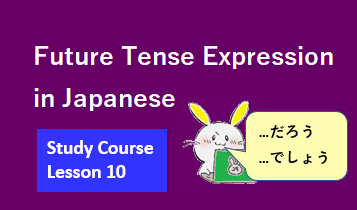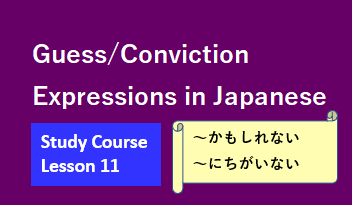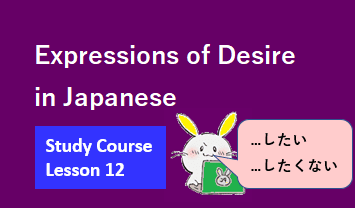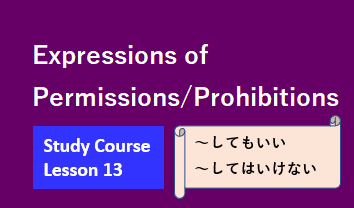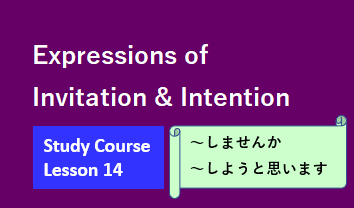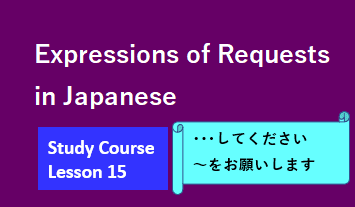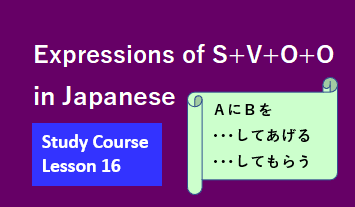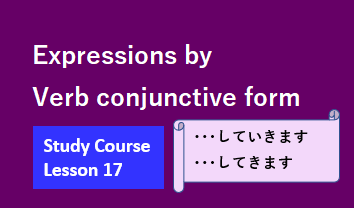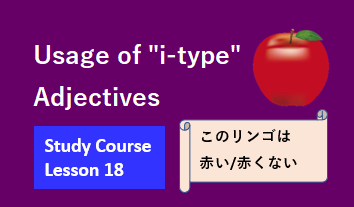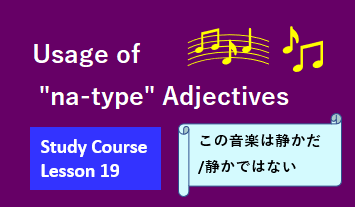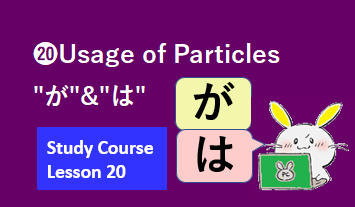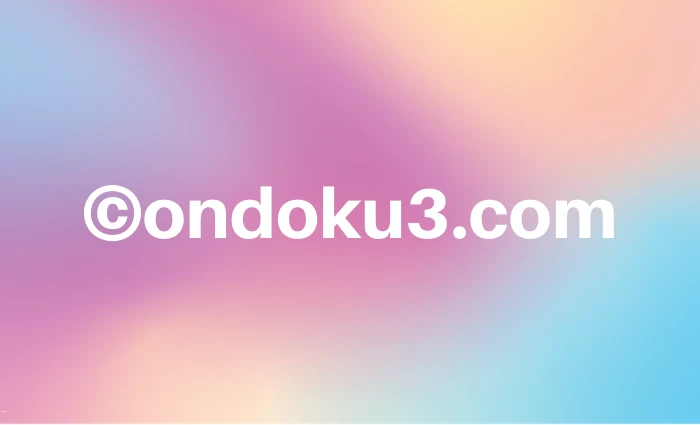Japanese Study Course Lesson5

Hello everyone. I'm JJ. Nice to meet you! Welcome to Japanese Study Course.
In lesson 5, we will study past tense of verbs and auxiliary verbs in Japanese.
5-1 Past tense of Verbs
- Past tense of Verbs (ordinary)➡ " Verb( past tense form )+た "
- Past tense of Verbs (polite) ➡ " Verb( Consecutive form )+ました "
(1)Affirmative form
- I bought two dictionaries.
- Ordinary:私は2冊辞書を買った。(私は辞書を2冊買った。)
- "私は2冊辞書を買った。" can also be replaced with "私は辞書を2冊買った。". They have the same meaning.
- Politely:私は2冊辞書を買いました。(私は辞書を2冊買いました。)
- "私は2冊辞書を買いました。" can also be replaced with "私は辞書を2冊買いました。". They also have the same meaning.
- Replacing "買った" with "買いました" makes it more polite.
◆Detailed explanation
- Ordinary:私は2冊辞書を買った。(私は辞書を2冊買った。)
- Politely:私は2冊辞書を買いました。(私は辞書を2冊買いました。)
- 私(subject)+は(nominative particle)
- +2冊(number+quantifier)+辞書(object)+を(object particle)
- <OR> +辞書(object)+を(object particle)+2冊(number+quantifier)
- +買っ(verb, past form)+た(auxiliary verb, past tense)/ +買い(verb, consecutive form)+ました(compound auxiliary verb, polite, past tense)。
◆Vocabulary note
| 冊 :(quantifier) A quantifier used when counting books, notebooks, etc. 辞書 :(noun) dictionary 買う :(verb) buy |
In Japanese, quantifiers are added to numbers when expressing quantities. There are many types of quantifiers, so I will explain them each time they appear.
◆Advanced Study Auxiliary verb "た" & Compound auxiliary verb "ました"
| た | Category: auxiliary verb Meaning: past tense Advanced commentary: Auxiliary verbs attached to verbs to show the past tense at ordinary sentences Example:買った ➡ 買っ(verb"買う", past tense form)+た(auxiliary verb, past tense) |
| ました | Category: compound auxiliary verb Meaning: polite past tense Advanced commentary: ました➡まし(auxiliary verb"ます", past tense form)+た(auxiliary verb, past tense) Example:買いました ➡ 買い(verb"買う", consecutive form)+ました(compound auxiliary verb, polite past tense) |
(2)Negative form
- I did not buy a dictionary.
- Ordinary:私は辞書を買わなかった。
- Politely:私は辞書を買いませんでした。
- Replacing "買わなかった" with "買いませんでした" makes it more polite.
◆Detailed explanation
- Ordinary:私は辞書を買わなかった。
- Politely:私は辞書を買いませんでした。
- 私(subject)+は(nominative particle)
- +辞書(object)+を(object particle)
- +買わ(verb, negative form)+なかった(compound auxiliary verb, negative past tense)/ +買い(verb, consecutive form)+ません(compound auxiliary verb, polite negative)+でした(compound auxiliary verb, polite past tense)。
◆Advanced Study Compound auxiliary verb "なかった" & "ませんでした"
| なかった | Category: compound auxiliary verb Meaning: negative past tense Advanced commentary: Compound auxiliary verb, negative past tense. Past tense of auxiliary verb "ない" Example: 買わなかった ➡ 買わ(verb"買う", negative form)+なかっ(auxiliary verb"ない", past tense form)+た(auxiliary verb, past tense) |
| ませんでした | Category: compound auxiliary verb Meaning: polite negative past tense Advanced commentary: ません:Compound auxiliary verb, polite negative ➡ませ(auxiliary verb"ます", negative form)+ん(auxiliary verb, negation) でした:Compound auxiliary verb, polite past tense ➡でし(auxiliary verb"です", past tense form)+た(auxiliary verb, past tense) Example: 買いませんでした ➡ 買い(verb"買う", consecutive form)+ません(Compound auxiliary verb, polite negative)+でした(compound auxiliary verb, polite past tense) |
◆Advanced Study Conjugation of the verb "買う"(Five-step)
| Negative form 買わ(ない/なかった) Auxiliary verb "ない/なかった" is added after | あなたはいつも何も買わない。 You don't always buy anything. 私は辞書を買わなかった。 I did not buy a dictionary. |
| Consecutive form 買い(ます/ました/ませんでした) Auxiliary verb "ます/ました/ませんでした" is added after | 私は辞書を買います。 I will buy a dictionary. 私は辞書を買いました。 I bought a dictionary. 私は辞書を買いませんでした。 I did not buy a dictionary. |
| Past tense form 買っ(た) Auxiliary verb "た" is added after | 私は辞書を買った。 I bought a dictionary. |
| Basic form 買う | 買う buy |
| Adnominal form 買う(+noun) Noun is added after | 野菜を買うときには新鮮なものを選んでね。 When you buy vegetables, choose fresh ones. |
| Hypothesis form 買え(ば) Conjunction particle "ば" is added after | 私も辞書を買えばよかったかもね。 Maybe I should have bought a dictionary too. |
| Imperative form 買え The form for giving orders | 私はお金がないので、君はおもちゃを自分で買え! I don't have money, so you buy yourself a toy! |
| Intentional form 買お(う) Auxiliary verb "う" is added after | 新しい雑誌が出たので、明日買おうと思う。 A new magazine has come out, so I think I'll buy it tomorrow. |
The conjugation form of the verb "買う" takes the form of "wa, i, u, e, o" like "買わない,買います,買う,買えば,買おう", so it is called the five-step conjugation of verbs.
For the better understanding of our readers, in KANBE Ryusho's room, regarding the case of the five-stage verb conjugations, we set them in the order of "a, i, u, e, o" based on the conjugation form . The verb "買う" is the five-stage verb, so it is arranged in the order of "wa, i, u, e, o".
5-2 Summary of Past tense of Auxiliary verbs
- Auxiliary verb "ます" ➡ [Past tense] "ました"
- 私は辞書を買います。(I will buy a dictionary.) ➡ [Past tense] 私は辞書を買いました。(I bought a dictionary.)
- 私は辞書を買います。(I will buy a dictionary.) ➡ [Negative form] 私は辞書を買いません。(I will not buy a dictionary.)
- 私は辞書を買いました。 ➡ [Negative form] 私は辞書を買いませんでした。(I did not buy a dictionary.)
Let's review today's study!
「私はリンゴを買いました。」(I bought an apple.)、
「チャッピーさんはリンゴを買いませんでした。」(Chappy didn't buy an apple.)
Perfect!


Today's lesson ends here. Ladies and gentlemen, did you understand today's theme "Past tense of verbs and auxiliary verbs"? Next time, we will learn about the present/past progressive tense. See you!
See you next time!

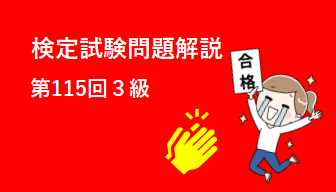



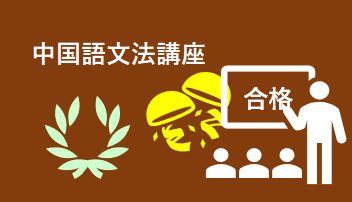
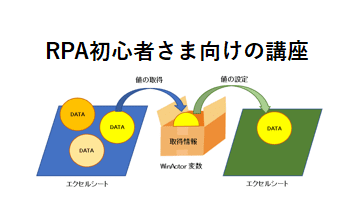
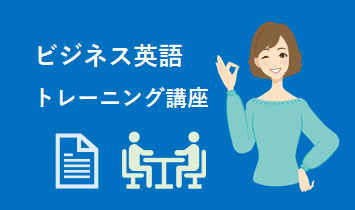

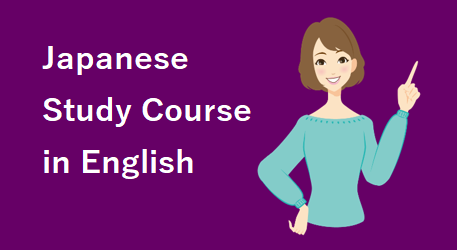

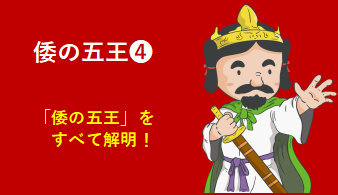
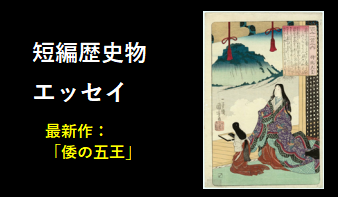
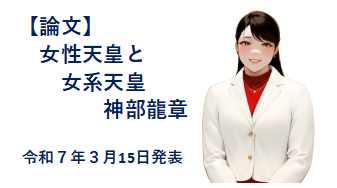
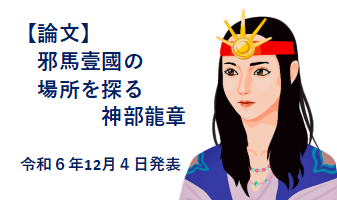
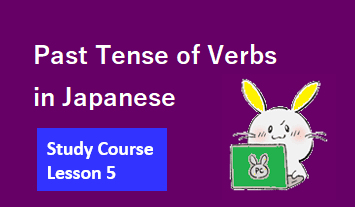

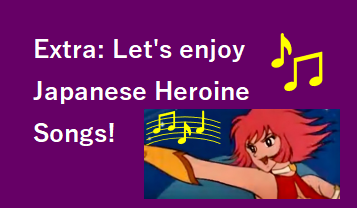
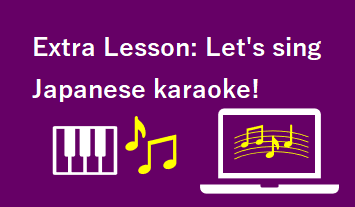
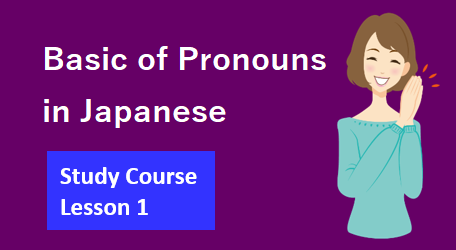
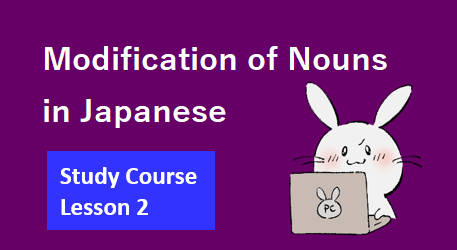

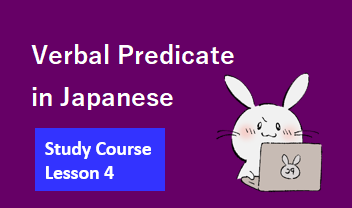

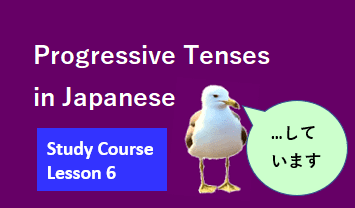
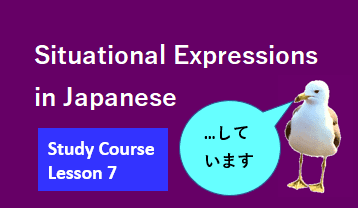
![❽Possible Expressions [1]](https://ryusho-kanbe.com/wp-content/uploads/2023/04/スクリーンショット-2023-04-03-100754.png)
![❾Possible Expressions [2]](https://ryusho-kanbe.com/wp-content/uploads/2023/04/スクリーンショット-2023-04-28-095816.png)
